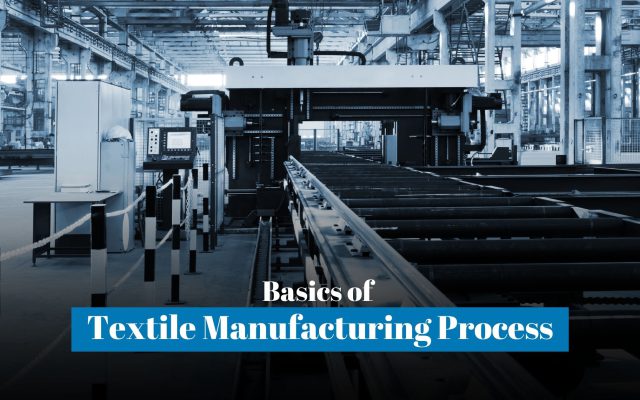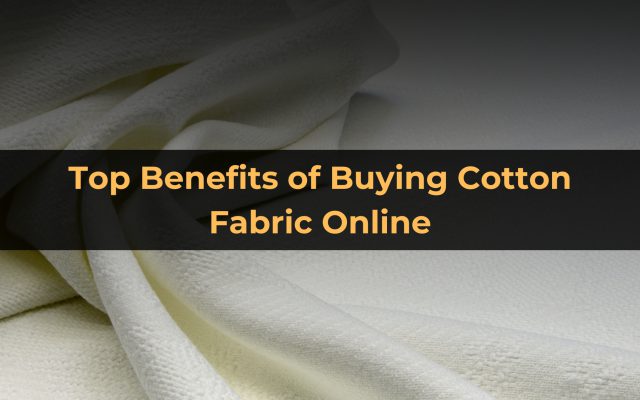The Indian Ministry of Textiles has made two rules to control the quality of technical textiles. This is to make sure that textile companies in India follow good quality standards, prevent dumping, and protect the environment and health, just like developed countries do.
The QCOs will be implemented in three phases. In the initial phase, 31 textile items will be under the radar, including 19 geotextiles and 12 protective textiles.
Geotextiles are synthetic fibers used to prevent soil erosion and stabilize loose soil. These textiles are mainly used in dams and highway construction projects. Protective textiles cater to firefighters and welders, meant to protect them from natural and man-made disasters like ultraviolet rays, radiation, heat, and storm.
Subsequently, two additional QCOs will be introduced for 22 agro-textiles and 6 medical textiles in Phase II. The GOI also plans to regulate 30 more textile items in Phase III of the project.
This is India’s first and one-of-its-kind Textile Technical QCO that will oversee textile products and technical cotton buyers.
BIS markings for these products will be effective 180 days after orders are published in the Gazette. The regulations will apply to both domestic and international textile sellers in India.
BIS Certification Becomes Mandatory
The BIS marking will ensure that the products meet the specified quality standards and safety requirements set by the QCO. The measures will not only promote fair competition in the textile trade but also ensure that textile manufacturers in India and other consumers receive high-quality, sustainable products.
What Are Covered Under the QCOs?
The Indian textile industry is the second-largest industry in the country and one of the largest in the world. It consumes both imported and homegrown fibers and filaments.
Textile companies in India import raw materials for cost-competitiveness, lack of availability in the domestic market, and to fulfill the custom demands of foreign fabric buyers.
The QCOs primarily aim to control the import of cheaper textile products and sub-quality by-products (particularly from China), including greige fabric, to ensure that yarn and fabric buyers get quality materials, regardless of the source – online or offline.
The QCOs will also address the expanding trade deficit, which currently stands at 40% of the total trade deficit.
What Challenges the New Regulations will Bring?
The Indian textile industry has recently mandated QCOs for the primary raw materials widely used in textile manufacturing, such as greige yarn, cotton, viscose, and polyester. This will ensure consistent quality standards throughout the production process and prevent the manufacturing of substandard products.
Currently, India buys 50,000 to 60,000 tons of viscose fibers, such as Modal, Rayon, and Tencel LF, from 20 countries.
Since getting the BIS certification involves cost, not all importers are interested in acquiring it. Textile manufacturers in India, depending on these suppliers, will have to either procure the products at a higher cost from other suppliers or lose the order completely.
Moreover, BIS accreditors must visit the overseas manufacturers’ unit before issuing the certificate. In fact, the process is yet to begin for all suppliers who have applied for the registration.
This will result in the disruption of the decade-established supply value chain of textile buyers and sellers, be it domestic or international.
How Can This Be Resolved?
Technical fibers have a wide range of applications across diverse industries, such as civil engineering, automobiles, construction, healthcare, agriculture, chemical production and protection, and industrial safety.
Based on utility, technical textiles are divided into 12 segments: Meditech, Buildtech, Mobiltech, Clothtech, Oekotech, Packtech, Geotech, Agrotech, Protech, Indutech, and Sportech.
Almost all varieties of fibers, be it polyester and viscose, have special functional and separate HS codes when sold to other countries.
These functional properties and Harmonized Commodity Description and Coding System (HS) are recorded in the QCO and therefore have uniform quality standards.
Limiting the availability of such fibers, of which textile companies in India import only small quantities, may result in consumers being deprived of the specialized products.
According to the Indian textile industry, importing such fibers that are blended with other fibers should be subject to QCO restrictions.
In addition, foreign applicants for the BIS certifications must receive timely review and approval after the inspection.
Once these ambiguities are cleared, QCO can be implemented.
Where Can You Buy and Sell Certified Cotton, Polyester, and Viscose Textiles?
DMI Pvt. Ltd. is the leading, oldest, and largest global textile supplier and exporter of yarns, knits, fiber, and woven, associated with 500+ textile buyers, sellers, and manufacturers in India and abroad. The company offers end-to-end solutions to all textile inquiries.
TEXchange is the brainchild of DMI that provides a streamlined trading platform for B2B greige yarn and fabric buyers and suppliers.
If you are looking for traditional solutions, go ahead and partner with DMI. And if you want to create an online presence and use digital tools to import and export, register on TEXchange for free.




